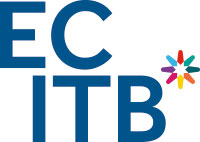 Falcon Group operates worldwide, supporting projects on all continents except Antarctica. Our head office is in Norwich, UK and we have a regional office in Houston, Texas. The software development and Zenator Support team operate from Belfast, Northern Ireland, part of the United Kingdom.
Falcon Group operates worldwide, supporting projects on all continents except Antarctica. Our head office is in Norwich, UK and we have a regional office in Houston, Texas. The software development and Zenator Support team operate from Belfast, Northern Ireland, part of the United Kingdom.
We call Zenator an Asset Verification Management System, and it has become an Industry Standard for Systems Completion through Commissioning & Start-Up. But what do we mean by these terms, Systems Completion (SC) and Commissioning & Start-Up (CSU)?
Alan Mills, owner of Falcon Global and author of MasterClass CSU has provided the following explanation of Systems Completion (SC) and Commissioning & Start-Up (CSU):
“For a project, CSU is the quintessential product of Gap Analysis. Projects in the Energy Industry, whether these are Nuclear, Oil & Gas, Process or Renewables, will have the design verified by a Performance Test.
The Performance Test will have been developed by engineers from the Engineering Design Contractor during the Design Phase and contemplates a fully commissioned facility. The CSU Manager must therefore fill the Gap by determining the path to verifiably and safely bring the constructed facility to the point where it can be Performance Tested; likely further objectives for the CSU Manager are to do so in the most cost-effective and expedient manner.
Systems Completion (SC) is the incremental sequence of verification testing from Factory Acceptance Testing (FAT) through Construction, Pre-Commissioning to System Commissioning. A Permit to Work process will be implemented to ensure a Safe System of Work (SSOW) at all times. Equipment or Test failures, flaws or deficiencies are recorded as Punch List Items (PLIs). The entire sequence is shown in a diagram such as the Completions Pyramid.
A financially successful project that meets investor expectations requires CSU to be completed with no production bottlenecks. For the CSU process to be cost-effective and expedient it must be seriously considered in the project’s embryonic stages, when it is high on the Influence Curve (early in the project life cycle when Influence is at its highest and the Cost of Changes at their lowest), becoming baked into the economic evaluation, Project Execution Plan, Contract Strategy and Project Strategy.
CSU embraces the entire process we call Systems Completion progressing through Commissioning to Ready for Start-Up, at which point Performance Testing can commence.”
For further information on MasterClass CSU, Systems Completion, Commissioning & Start-Up, Gap Analysis, the Influence Curve, Performance Testing and much more, look here.
As a service to our customers and others we have applied our expertise in SC and CSU to developing world-class training programs, in-person, virtual classroom and eLearning. These are the MasterClass Series in SC and CSU and a range of courses in Zenator. In 2020 the MasterClass Foundation Training course was approved by API-U, part of the American Petroleum Institute (API.org) and the UK’s Engineering Construction Industry Training Board (ECITB.org.uk).
Our philosophy of Training the Trainer and developing local talent has attracted support industry-wide. We ensure that local talent become highly trained in the methodology underpinning Zenator, as well as real expertise in the use of the software. For example, in Nigeria, between 2007 and 2014, over 50 engineers were trained from Power User to Super User in Zenator, supporting Chevron projects.
We had similar success in Indonesia, where the brightest and best young talent quickly developed the skills needed to bring Banyu Urip, a major ExxonMobil project, to a successful completion between 2014 and 2016.
We are proud to continue the trend through the pandemic and work closely with ANOH Gas Processing Company (AGPC), a dynamic new company as we support them through the CSU phase of their gas plant being constructed in Owerri, Imo State, Nigeria.

